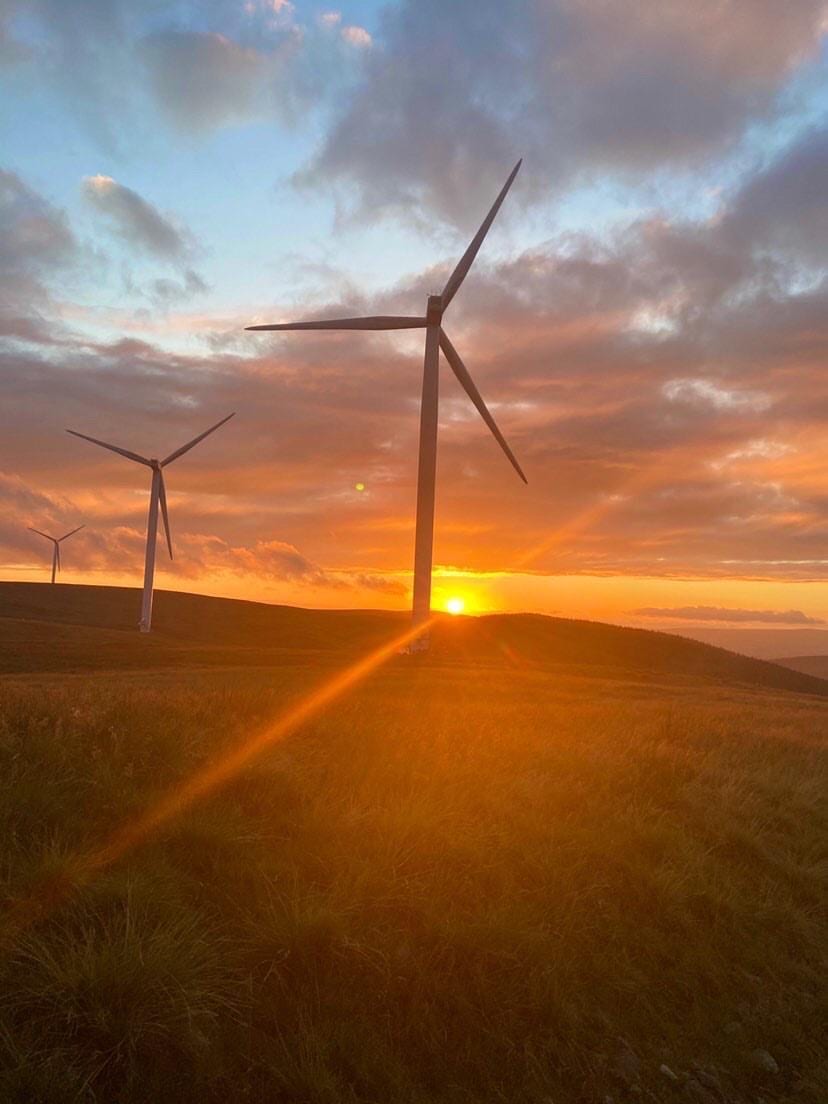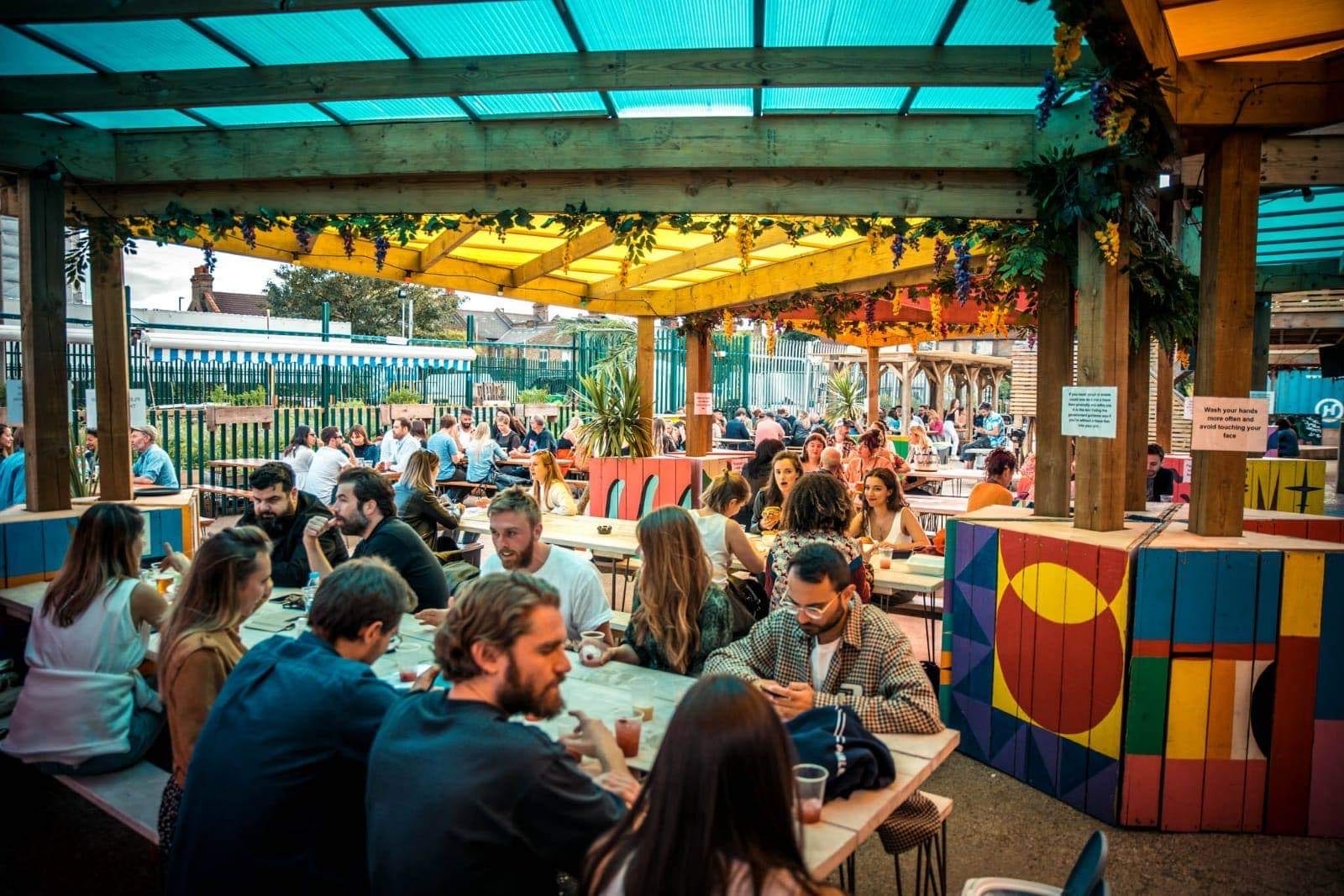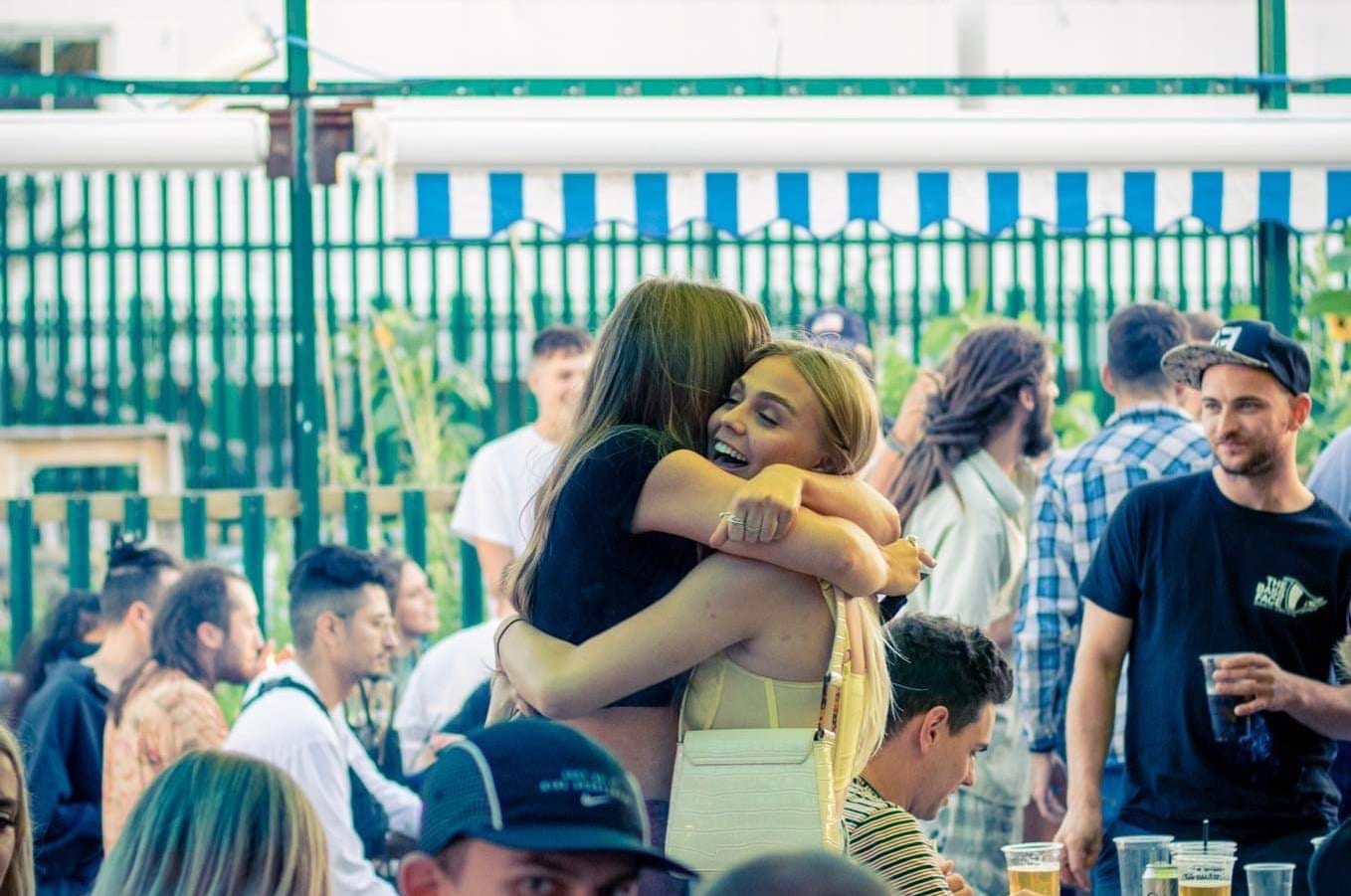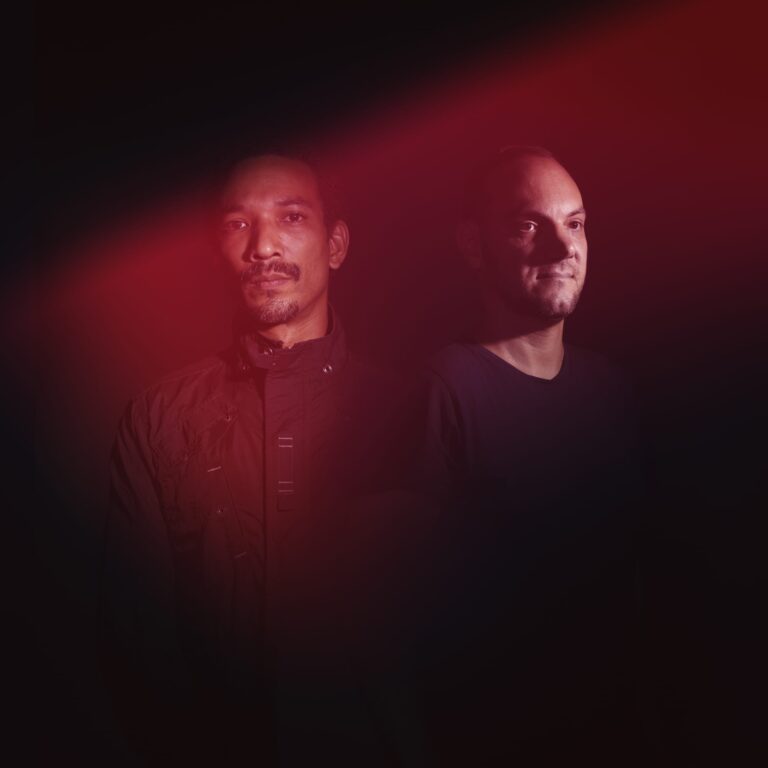Costa Del Tottenham: Picture courtesy of Engage Audio
“When people left the rave, I expected them to stick to the guidelines in real life; don’t see elderly family, wear masks when you leave the house, social distancing. The thing is with that rave, it wasn’t real life, I didn’t want it to be real life, I wanted people to forget about things.”
These are the comments of John*, someone who has organised parties during lockdown and been part of the booming of illegal events across the UK this Summer. Covid-19 made so many things forbidden in 2020, and raving sadly sits at the bottom of the safety pile even as lockdown begins to slowly lift.
Whether fuelled by an act of rebellion or a desire to escape what has felt like never-ending isolation, these events have been largely condoned by the general public and mainstream press.
The Guardian, for instance, lambasted “The Shocking Return of the Rave” while the nightlife industry have also condoned the events for the risks to people and the extra strain put on the NHS.
“DIY alternatives are being organised by opportunists, using scrupulous suppliers who are purely focussed on financial gain,” stated Michael Kill, CEO of the Night Time Industries Association (NITA) in an official statement. While this might be an apt description of some illegal event organisers, it’s definitely not the whole picture.
People like John, for example, certainly weren’t in it to make a profit. He sits on a spectrum of events that have taken place this summer ranging from council-approved socially-distanced events to large illegal raves that have ended with tragic casualties.
On the first side is Nitty Collective’s headline-making event at the end of May where they managed to pull off the first council approved socially-distanced rave in a Forest near Nottingham. They had people dancing in household bubbles and provided sanitiser and masks, successfully negotiating a line between people’s desire to be free and party, and the overriding public health concern.
Then, on the other side of the spectrum, was the even bigger headline-making events that happened in Manchester in July in Daisy Nook county park and Carrington. John was present at one of these events.
“It was nothing like I’d ever experienced before,” he explained. “The whole vibe was agro, people were kicking off all around us.”
Witnessing the carnage made John seriously consider cancelling everything he’d planned coming up. Instead, he worked to minimise the risks for his party-goers. While he didn’t provide things like santiser or masks, John worked to limit the number of people attending. It maxed at 300 over the night and he personally oversaw a serious clean-up operation the morning after.
John noted that while social media has made throwing events so much easier now, he used it “in the exact opposite way” to events he was used to organising prior to lockdown. He did this by making sure as few people found out as possible, including changing the spot of the event on the day as it “got too hot.”

John’s event went off without any immediate harm. People danced as safely as they could together from sunset to sunrise under a windmill in the countryside. When I spoke to him, a concern he repeatedly expressed was the lockdown’s effects on people’s mental health. He saw his parties as offering people an important chance to escape and let loose. After following a strict lockdown with his family for eight weeks, like many, his mental health began to suffer. This was increased by the fact he lost upwards of £10,000 in potential earnings from (legitimate) events when the virus took over. He said that planning the events gave him back purpose and motivation in his life.
“It was even more emotional than 6am sessions, all exacerbated by everyone there having gone through this global pandemic,” he explains. “It wouldn’t have happened without the people. I do feel like the way everyone was reacting to the music, it was 100% down to the fact that everyone had been cooped up. They were letting go, forgetting about mental health issues they had been struggling with. I feel like if I threw the exact same rave in the exact same spot with the exact same crowd but coronavirus never happened it would’ve been very different. The crowd would’ve been more scattered, less engaged. It would’ve been a different atmosphere.”
In this context, it could be argued that events like this are the closest semblance to the previous ‘summer of love’ events 30 years ago. John agrees and says that the raves we’ve heard about in the news were “probably the tip of the ice-berg.” He predicts that in reality tens of thousands of people must have attended events like this up and down the country. IQ mag stated a similar thing in a recent article that “the entertainment-deprived young people of Britain are partying like it’s 1989.”
Rewind to 89
It’s important to understand the context of the previous summer of love during the emergence of acid house in 1989. Described as such due to the anti-establishment similarities with the original hippie summer of love in 1967, the rave summer of love happened in both 1988 and 1989 where, under Margaret Thatcher’s Conservative government, partying outdoors became highly politicised.
At the time the public moral concern was over the acts of illegal partying, trespassing and drug taking. In 2020 these rebellious expressions of personal freedoms are also being compromised by a global pandemic. But even then, is the ‘return’ of the illegal rave so shocking?
The cultural conditions are all there; the youth are frustrated with the government and they are similarly reacting to an enforced isolation. The boom of illegal raves wasn’t just about the birth an exciting new music culture, it was the explosion of pressure and restrictions set in place by the Tory government at the time. In 1987, just a year before the second summer of a love, Thatcher famously said ‘there was no such thing as society’ and the prospects the youth had at the time were remarkably similar to the bleak future young adults face now, regardless of the social-distancing enforcements.
Another similarity in how people are partying like it’s 1989 again is in the taking over of the countryside. Matthew Collin in his book Altered State discussed how during the second summer of love, partying outdoors became a romanticised symbol of freedom where young people escaped from cities and reconnected with nature. While the countryside has become romanticised for everyone in the UK seeking to escape lockdown confinement, it has also become politicised once more as young people take to the countryside to partake in the forbidden act of partying together.
To understand the politics of this a little, it’s worth reading Alice O’Grady’s article Dancing Outdoors in Dancecult Journal. Alice uses Hakim Bey’s theory of the Temporary Autonomous Zone (TAZ) to understand the politics of partying. Bey argues that humans are driven by the need to experience freedom in cohesive groups “in real time/space.”
Parties in all the incarnations of ‘Summer of love’ can be seen as TAZs: “Creating an outside or true space of resistance to the totality.” As John viewed it, his parties were a space outside of real life where people could forget about their troubles.
The DIY spirit and seated raving
Another way 2020 could be seen as the third summer of love is in the return of the DIY ethic that fuelled the original rave generation. Early on in lockdown we pinned the return on the DIY ethic on the proliferation of livestreams in our Anti-Virus series contemlating how DJs and platforms like Goatshed and Onyx Recordings took matters into their own hands to keep us entertained and connected to each other and our music.
Another DIY initiative can also be witnessed in the innovative ways venues are adapting to social distancing guidelines. The summer of love isn’t just about illegal raves, but how people have found a way to negotiate the restrictions that have been put in place by the virus. I spoke to Dean Cullen (Four Points) from Engage Audio after their first Liquid Sessions event they put on at The Cause aka Costa del Tottenham in August. The legal compromise of tabled events may seem against the communality of the rave scene but they are helping people enjoy themselves and the music they love again.

“I got a sense of people wanting to work through these difficult times with us and abide by rules rather than just doing what they wanted,” says Dean whose first party saw the likes of Zero T, Pola & Bryson and Kolectiv play and had a great atmosphere throughout. “We are all in this together and I got a real sense of that from people.”
While Dean appreciates that “seated events are not raves and they can’t really be compared,” he sees the merit of these events for now. “It’s more like going to your local pub but with big DJs playing and familiar D&B Familia everywhere,” he grins. “What’s not to like about that?!”
Manchester-based artist and DJ Euphonique also spoke to me about her experience of playing at a seated socially distanced event where tables of up to 6 people were kept separated by ribbons: “It was a weird one not having the full vibe of the crowd to interact with – but the bass faces and gun fingers from some of the tables made all the difference haha! It was hard for the crowd but the DJs more so, club DJs are not used to being background music but it kinda felt like that at times, watching people before me play and after playing but no one dancing as such just chatting at tables – especially when they were smashing it – was so odd!”
Despite the potential oddness of these seated events, like Dean she sees the value in them now: “The promoters running the kind of events and venues are doing their best with the new normal and keeping the scene alive – and not making much of anything from if as capacities have been more than halved – and DJs are happy to play out again and drop all of our bloody lockdown tunes!”
Euphonique’s perspective is especially interesting as she began playing out on the free party scene in Manchester 10 years ago. She understands the dangers and has seen how “love, peace and unity take a dark turn.”
“The younger free party organisers need to understand it’s about putting safety measures in place as much as it is having a sick rig and top location,” Euphonique explains. “And that’s even before COVID.”
“Right now I think we all just want normality back, or as close as we are gonna get to it in music,” she continues. “But if people keep putting on free parties with no regard for the virus or safety of their DJs and partygoers, it’s all just going to get worse. We want the music industry back – bad press on music parties is just going to delay even longer – and it’s peoples jobs and livelihoods at stake (the engineers, roadies, promoters, venues, performers etc) not just the fact we are missing the rave.”
Even if some might think it’s overstated to say 2020 has seen the third summer of love, it’s also hard to ignore the eruption of energy from young people who have found ways to party, legal or not. Maybe what should be taken from this is that these energies need to remain ignited under a government that would happily see underground music venues closed and replaced by luxury flats or soulless high-end bars. The establishment of campaigns like #letusdance and #wemakeevents shows how the nightlife industry have had to battle to make its voices heard. It will be vital to maintain this innovative spirit that can negotiate people’s safety along with their right to party.
*John’s name has been changed for anonymity


